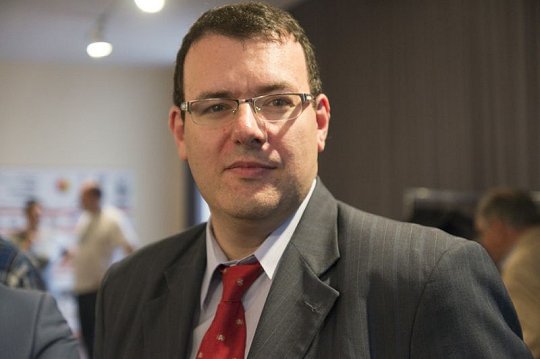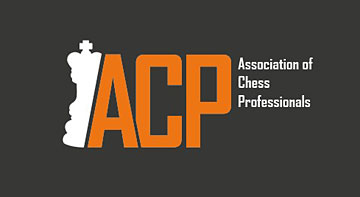The format of the World Championship - a proposal

Emil Sutovsky, President of the Association of Chess Professionals (ACP)
First of all, I'd like to congratulate Magnus for retaining the title, and praise Sergey who was a worthy opponent to the reigning Champion. The Title Match is the most prestigious and the most followed event in chess – and I believe we shall stick to the match format – there were literally millions of spectators following the battle of New York. It was thrilling from the sportive point of view, but I believe the games could have been much more exciting if a different format was used. I would like to share my views:
1. Number of games
I don't think twelve is an optimal number of games. With twelve games the match seems to be too short – and this influences the match strategy of the players, provoking them to play overcautiously as even a single loss may prove too costly. Spectators also do want the show to go on. Chess fans and aficionados did not get tired of the match in New York – the vast majority would have liked to see more games. Whereas a 24-game match might be a bit too long for many reasons, I would suggest 16 games as a number that strikes a balance perfectly. It won't even increase the costs too much, if we have a day off after every three games (and not after two as in New York).
2. What to do in a case of a tie?
I have heard many proposals. All of them have some logic behind them, but I find it unfair to award the match to the reigning Champion in case of a tie, and I also don't think that an odd number of games and an extra attempt for Challenger playing with White helps too much (having White is not a meaningful advantage on the top level anymore).
I actually like the idea of a rapid tie-break. Just not after the regular part of the match, but BEFORE it. Then, the match starts with a bang (I'd rather call it overture) - a lot of excitement and the winner gets a pole position – which makes the classical chess that follows invariably more attractive – as a tie will now suit only one of the players. But the classical games will decide the match. The World Championship matches in 2006, 2012, and 2016 were decided by a rapid tie-break and the last classical games of these matches were anti-climactic, to put it mildly. It is also important, in my opinion, to play the rapid tie-break on two days (Saturday and Sunday – with a massive audience!), which allows us have more games (3+3) while one bad day won't have a decisive impact. Let's also not forget – we don't want our gladiators to die – playing four rapid games for such a high stakes, followed by possible blitz and Armageddon is really too tough. Honestly, I don't see any disadvantages in the proposed format change – except for one thing: this solution is a bit out-of-the-box. But we are chess people - we are supposed to be capable of such things!
3. No shorter time-controls
Finally, I'd like to unequivocally stress that I don't like the idea of shortening the time-control in the World Championship Match. This idea is advocated by some impatient spectators and even strong Grandmasters who find that classical chess becomes more and more dull. In my opinion, neither rapid nor “new classic” (about an hour for each player) is good enough to replace the proper classical game. I'd like to remind the proponents of shorter time-controls that the World Championship match is watched by millions of people, and making it more spectacular (if one considers mistakes to be spectacular) on the expense of damaging the quality of play is hardly a productive idea. Actually, the stats from Norway where 5-10% of the entire population followed every classical game from beginning to end on TV clearly proves that classical chess can be attractive – we just have to present it properly. And we don't have to compare chess with other sports all the time! Chess is a sport, yes. But the main reason why there is serious money in chess is our rich history, our traditions, our image of the most intellectual sport. Speeding up is zeitgeisty and trendy, but sometimes it is wise to be anti-trend and to stick to your niche, adjusting and improving, but not rebranding it. In a few years we will celebrate the centennial of the “Classical chess is dead – it is just a draw” movement. But chess is still alive and kicking, and it is bound to outlive those who claim its death today...
Of course, every reader is welcome to disagree with me and express his/her opinion in the ACP World Championship poll. We will publish the results in January – and develop recommendations for Fide based on the results of the poll. Make your opinion heard!

Naturally many people have their own opinions about the ideal format – and let me invite you all to express your thoughts by participating in the → detailed ACP poll dedicated to the World Championship format ←

























